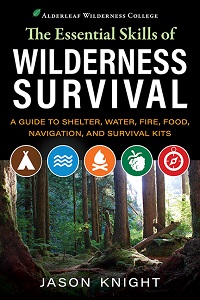With the right preparation and knowledge, an enjoyable and safe hiking experience is possible.
In order to ensure a successful trip, one must take into account certain dos and don’ts of hiking.
This article outlines five important considerations to keep in mind when planning a hike.
Read on to learn more about what not to do while venturing out on your next outdoor adventure!
Key Takeaways
- Do not hike alone, always bring a companion for safety
- Do not ignore signage and regulations, adhere to them for a safe hike
- Do not disregard local rules and laws for public or private property
- Do not carry excessive gear, rely on maps and navigational skills instead
In This Article
Don’t Underestimate the Terrain
Hiking can present unexpected challenges in terrain that should not be underestimated. It is important to plan ahead and avoid taking shortcuts as this could lead to dangerous outcomes.
Those new to hiking should research the route they are taking, paying particular attention to any elevation changes or sections of difficult terrain.
Pro Tip: Experienced hikers may often overestimate their abilities, so it is necessary for them to plan accordingly and accept that certain areas may require more time than anticipated.
It is also important to take into account the weather, especially if venturing off the beaten path where assistance may not be available, and pack appropriately for any given conditions.
Taking these precautions reduces the risk of encountering unexpected obstacles while on a hike and allows you to enjoy your journey with confidence.
Don’t Hike Alone
Solitary exploration of the wilderness should be avoided. This is especially true for beginners, but experienced hikers should take note of this as well.
Of course, short hikes in well trafficed areas is different; but if you are planning a long day hike, it’s best to have a hiking partner.
Hiking alone carries with it many risks, such as becoming disoriented in unfamiliar terrain or succumbing to the elements due to lack of preparedness and prevention.
To remain safe while hiking, it’s important that you bring a companion along for safety and security.
Having another person can help provide an extra set of eyes to spot potential hazards on the trail and make sure you stay hydrated and wear sunscreen during your journey in order to protect yourself from overexposure.
By having someone along, hikers can enjoy peace of mind knowing they have someone there if any emergencies arise.
Therefore, when planning a hike, remember that two heads are better than one!
Don’t Bring Too Much Gear
Excessive gear can weigh down hikers and hinder their progress on the trail. Overpacking supplies for a hike is an easy mistake to make, but it can be detrimental to your success.
It is important for hikers to balance what they need with what they can carry, as carrying too much can slow them down and cause fatigue.
Pro Tip: Bulky items like tents and sleeping bags should be reserved for longer hikes.
Instead of bringing extra items, hikers should rely on maps and their own navigational skills in order to find their way along the path. Maps are lightweight and don’t take up much space, so having one handy is always a good idea.
Ultimately, it’s important for hikers to remember that less really is more when it comes to packing gear;if something isn’t absolutely necessary or won’t help you complete your journey safely, leave it at home!
- A popular activity for outdoor enthusiasts and families, day hiking provides a simple way to de-stress, stay in shape, and connect with nature and fellow hikers. Day Hiking Essentials includes information on choosing gear, packing for the hike, navigating
- Kavanagh Waterford Press, James (Author)
Don’t Overlook the Weather Conditions
It is important to consider the weather conditions before embarking on a hike.
Packing light: bring only what you need; don’t overload yourself with too much gear.
Dressing appropriately: wear clothing that can be adjusted for variations in temperature and moisture.
Checking the forecast: know what kind of climate to expect on your adventure, researching potential hazards such as storms, flooding, and extreme heat or cold.
Don’t Ignore Signage and Regulations
Adherence to signage and regulations is essential for a safe and successful hike.
Hikers must stay aware of local rules, such as permits, fire restrictions, camping requirements, etc. They should obey laws that apply to public or private property they will be traversing.
Also, hikers should pay attention to posted signs that provide information about the area’s terrain and wildlife. These signs may contain warnings about dangerous conditions or particular hazards in the area.
It is also important for hikers to stay on designated trails so as not to disrupt natural habitats or interfere with other activities taking place in the area.
Ignoring these regulations can lead to serious consequences such as fines or injury. Thus, it is imperative for hikers to understand and follow any applicable signage or regulations while out on the trail.
What’s Next?
Hiking can be an enjoyable and rewarding experience, but it is important to be aware of potential dangers and take precautions.
It is best to plan ahead by studying maps, gathering the necessary gear, understanding local regulations, and checking weather conditions.
To ensure a safe and successful hike, hikers should not underestimate the terrain, hike alone, bring too much gear, overlook the weather conditions or ignore signage and regulations; these mistakes can quickly become costly misadventures.
Hiking should be approached like a dance: careful planning and preparation will help you keep in step with nature’s rhythms.
The Essential Skills of Wilderness Survival

The Essential Skills of Wilderness Survival will empower you to survive emergencies and grow deeper connections to nature, with expert instructor, Jason Knight of Alderleaf Wilderness College
You’ll discover skills that could save your life and the lives of those around you, so that you make it through challenges alive and safe, and can fully enjoy the freedom of exploring the backcountry, without worry.




We are participants in the Amazon Services LLC Associates Program, an affiliate advertising program designed to provide a means for sites to earn advertising fees by advertising and linking to Amazon.com